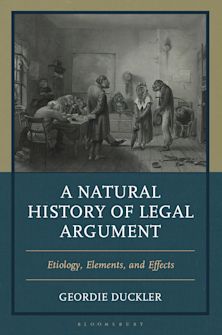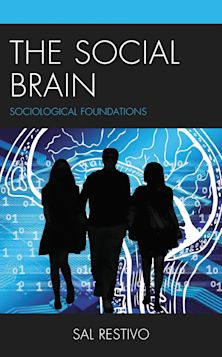- Home
- ACADEMIC
- Sociology
- Sociology - Other
- Talcott Parsons Today
Talcott Parsons Today
His Theory and Legacy in Contemporary Sociology
Javier A. Trevino (Author) , Neil J. Smelser (Contributor) , A. Javier Trevino (Contributor) , Lawrence T. Nichols (Contributor) , Willaim Buxton (Contributor) , David Rehorick (Contributor) , Bruce C. Wearne (Contributor) , Bernard Barber (Contributor) , Bryan S. Turner (Contributor) , Johnathan H. Turner (Contributor) , Stephen Fuchs (Contributor) , Victor Lidz (Contributor) , Uta Gerhardt (Contributor) , Mark Gould (Contributor)
Talcott Parsons Today
His Theory and Legacy in Contemporary Sociology
Javier A. Trevino (Author) , Neil J. Smelser (Contributor) , A. Javier Trevino (Contributor) , Lawrence T. Nichols (Contributor) , Willaim Buxton (Contributor) , David Rehorick (Contributor) , Bruce C. Wearne (Contributor) , Bernard Barber (Contributor) , Bryan S. Turner (Contributor) , Johnathan H. Turner (Contributor) , Stephen Fuchs (Contributor) , Victor Lidz (Contributor) , Uta Gerhardt (Contributor) , Mark Gould (Contributor)
This product is usually dispatched within 2-4 weeks
- Delivery and returns info
-
Flat rate of $10.00 for shipping anywhere in Australia
You must sign in to add this item to your wishlist. Please sign in or create an account
Description
Talcott Parsons Today offers a reappraisal—and extension—of the work of the most significant and influential twentieth-century sociologist. The volume consists of original essays by prominent Parsons scholars from the United States, the United Kingdom, Canada, Australia, and Germany. Finally, and most important, it makes a significant contribution to the current controversy surrounding an important sociological figure. The book consists of 10 essays, nine of which are original pieces; all are written by well-known scholars who are intimately acquainted with Parsons' body of work.
Table of Contents
Chapter 2 Introduction: the Theory and Legacy of Talcott Parsons
Chapter 3 Parsons and Simmel at Harvard: Scientific Paradigms and Organizational Culture
Chapter 4 The Place of Max Weber in the Post-Structure Writings of Talcott Parsons
Chapter 5 Elias and Parsons: Two Transformations of the Problem-Historical Method
Chapter 6 Parson's Second Project: The Social System - Sources, Development and Limitations
Chapter 7 Social Systems and Complexity Theory
Chapter 8 Can Functionalism Be Saved?
Chapter 9 Networks and Systems
Chapter 10 Language and the "Family" or Generalized Symbolic Media
Chapter 11 Parsons's Analysis of the Societal Community
Chapter 12 Empirical Sociological Theory and the Resolution of Normative Dilemmas
Chapter 13 Index
Product details
| Published | 07 Aug 2001 |
|---|---|
| Format | Paperback |
| Edition | 1st |
| Extent | 320 |
| ISBN | 9780742509580 |
| Imprint | Rowman & Littlefield |
| Dimensions | 229 x 156 mm |
| Publisher | Bloomsbury Publishing |
About the contributors
Reviews
-
The contributors to Talcott Parsons Today include most of the finest Parsons scholars and some of the best sociological theorists in the world. Written well into the second decade of 'the Parsons revival,' the essays-some historical, some systematic, some critical-reflect a new level of maturity in contemporary thinking about Parsons and his continuing legacy.
Jeffrey Alexander, Yale University
-
The examplary contribution of this volume to renewed understanding of a neglected scholar merits its inclusion in the core library of anyone interested in the state of sociological theory. Essential for all collections.
Choice Reviews
-
...the really good essays are uniquely good, and I recommend them to all sociologists who have an interest in theory.
Harold J. Bershady, American Journal of Sociology
-
The ten essays that comprise this unique volume not only testify to the emerging Parsonian renaissance, but also, just as importantly, constitute a significant stimulant for sociological theorizing in the new decade. Particularly relevant are those essays that bring out the richness of the later and lesser studied writings of Parsons.
Edward A. Tiryakian, Duke University



































